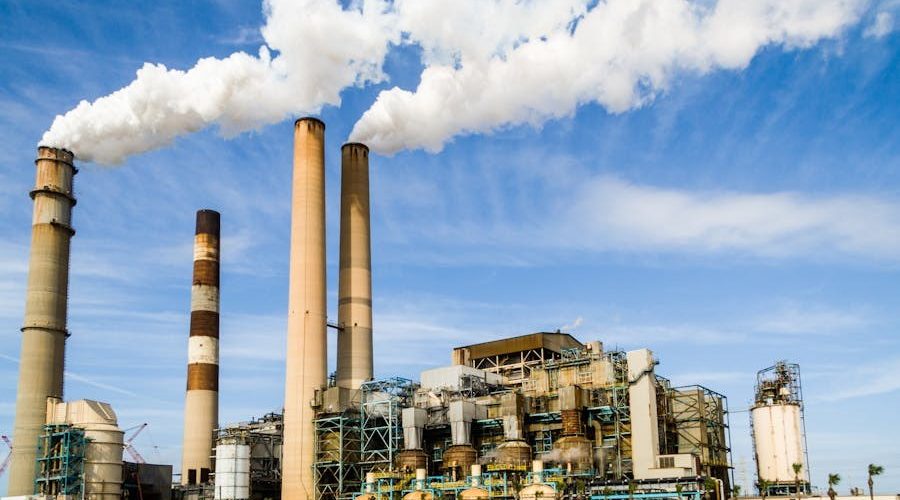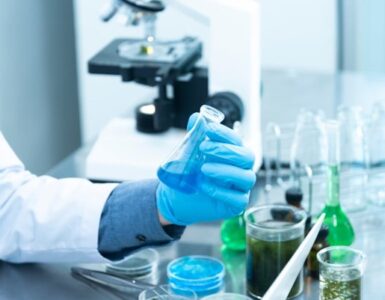The National Association of Manufacturers has moved to block a rule from the EPA that lowers the National Ambient Air Quality Standards for fine particulate matter (PM2.5) to 9 micrograms per cubic meter.
The NAM Legal Center has sued to block the ruling. The NAM and the EPA had a similar conflict in November.
“In pursuing this discretionary reconsideration rule, the EPA should have considered the tremendous costs and burdens of a lower PM2.5 standard,” NAM Chief Legal Officer Linda Kelly said. “Instead, by plowing ahead with a new standard that is vastly more restrictive than any other national standard, including that set by the EU, the agency not only departs significantly from the traditional NAAQS process, but also gravely undermines the Biden administration’s manufacturing agenda—stifling manufacturing investment, infrastructure development and job creation in communities across the country. The NAM Legal Center is filing suit to protect manufacturers’ ability to obtain permits, expand facilities and pursue long-term investment plans, and defend our country’s competitive advantage.”
The Clean Air Act mandates that the Environmental Protection Agency (EPA) conduct a review of the National Ambient Air Quality Standards (NAAQS) every five years to assess the adequacy of the PM2.5 standard.
Recently, the EPA performed an out-of-cycle reconsideration of this standard. In December 2020, after a comprehensive review, the EPA chose to maintain the PM2.5 standard at 12 micrograms per cubic meter. However, in June 2021, the agency announced its intention to revisit this decision.
NAM submitted comments advocating for the retention of the current standard. The EPA has reported a 42% reduction in PM2.5 concentrations since 2000, attributing this decline to significant emissions reductions from various sources, including the mobile sector and power generation.
Notably, the European Union’s standard stands at 25 micrograms per cubic meter, with a proposed reduction to 10 by 2030, while the United Kingdom aims to achieve a standard of 10 by 2040.
The EPA acknowledges that a substantial portion (70%) of particulate matter originates from nonmanufacturing sources, such as wildfires (29%), agriculture and prescribed fires (15%), crop and livestock dust (12%), unpaved road dust (10%), paved road dust (3%), and general “dust” (2%).
Arizona business community: new standard undermines cooperative federalism
The Arizona Chamber of Commerce & Industry has been equally critical of the EPA’s new PM2.5 standard, saying it undermines the idea of cooperative federalism embedded in the Clean Air Act and replaces “cooperation with an unrealistic and unattainable mandate.
“Arizona and the Southwest face unique issues and should not be subjected to this ineffective, one-size-fits-all approach,” Chamber President and CEO Danny Seiden said. “Arizona job creators believe in cooperative federalism and are good faith partners in efforts to improve air quality. But the federal government’s top-down regulatory approach will have real consequences for Arizona industries like manufacturing, mining, and agriculture, and jeopardizes permitting for new job-creating projects.”
The Chamber last week hosted Joe Goffman, the head of EPA’s Office of Air and Radiation to discuss this and other EPA proposals that have the potential to constrain economic growth in the state.
https://x.com/AZChamber/status/1765870660876681417?s=20
Congressional delegation weighs in
Arizona U.S. Rep. Ruben Gallego (D) wrote to EPA Administrator Michael Regan to urge the agency to acknowledge that some pollution is outside the control of the state.
“Efforts to address air pollution in Arizona must focus on practical solutions that both account for the sources of pollution, including sources outside of impacted communities, and for ongoing efforts around electrification and environmentally conscious development,” Gallego said in his letter.
“We appreciate Rep. Gallego’s decisive stand against EPA measures that unfairly penalize Arizona for emissions beyond our control,” Seiden said. “The Chamber supports his call for pragmatic solutions, recognizing that 80% of the pollution affecting our state originates elsewhere. We thank Rep. Gallego for his leadership and join him in calling for a balanced approach that fosters both environmental sustainability and economic growth.”
U.S. Sen. Kyrsten Sinema (I-Ariz.) has partnered with Sen. Bill Cassidy (R-La.) to introduce legislation to modernize the Clean Air Act to include permitting reforms that will encourage business and job growth.
“Arizona is home to the resources and businesses that serve as the bedrock for the clean energy technologies of the future. Our bipartisan legislation responsibly updates the Clean Air Act to help develop new clean energy technologies, attract more businesses to Arizona, create strong jobs for Arizona families, and ensure clean air for generations to come,” she said.
The Chamber supports the effort.
“Industries in the region have demonstrated their willingness to act responsibly under the Clean Air Act, but we require a partner at the federal level who is equally committed,” Seiden said.
















Add comment